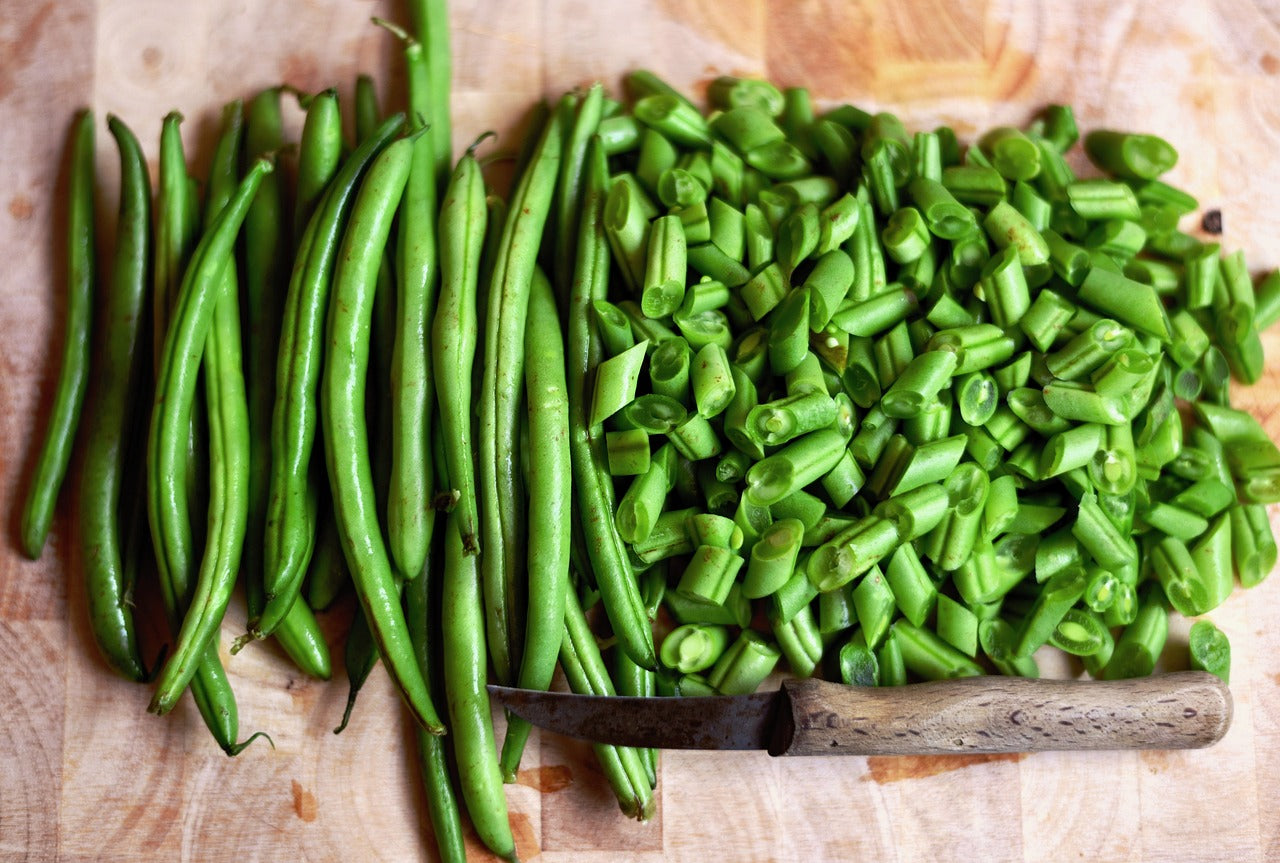
Surprising Things You Never Knew About Green Beans
One of the most abundant summer crops in backyard gardens are green beans.
Hanging from their stalks, these legumes have been bred intentionally to be both easily digestible (unlike other beans) and extremely palatable.
Yes, grandmothers love making grandchildren eat green beans, but they’re not crazy to do so!
Frankly, green beans are just awesome.
They make a great base for casserole, are perfect steamed and tossed into a salad and are one incredibly healthy vegetable.That, and they look so cool hanging from their stalks, just begging to be picked!
But, you might have been able to guess that already.
6 Reasons to Love Green Beans
They’re Low on the Glycemic Index:
Eating Green beans has very little effect on your blood sugar. Unlike most foods in the modern diet which send your insulin levels through the roof, the green bean won’t cause your blood sugar to spike.
The science here says if you’re eating food low on the glycemic index it will keep insulin along with other hormones within their normal levels.
This in turn will help you stay at a normal weight, will prevent you from experiencing sugar cravings, and will help keep other hormones (like cortisol, adrenaline, leptin and more) at the right levels so you experience Health As It Ought To Be.
They’re Extremely Low in Phytates:
If you don’t know what phytates are then you’re not alone.
Phytates are an antioxidant occurring in whole grains, legumes, nuts and seeds.
The only reason you’d ever be concerned about phytates is because they can inhibit your ability to absorb certain nutrients.
Affected in particular are zinc, iron, calcium, and manganese.
Well, to repeat it again, green beans are very low in phytates, which means your body won’t run into the problem of slowed absorption of these vital nutrients. Other beans are high in phytates which is why this is so significant.
They’re High in Antioxidants:
As the World’s Healthiest Foods notes:
“Green beans contain a wide variety of carotenoids (including lutein, beta-carotene, violaxanthin, and neoxanthin) and flavonoids (including quercetin, kaemferol, catechins, epicatechins, and procyanidins) that have all been shown to have health-supportive antioxidant properties.
In addition, the overall antioxidant capacity of green beans has been measured in several research studies, and in one study, green beans have been shown to have greater overall antioxidant capacity than similar foods in the pea and bean families, for example, snow peas or winged beans.”
I always recommend building your diet to be a diet full of foods high in antioxidants.
The available research is telling us the more antioxidants in your diet, the better your chances of reducing many of the common diseases found in our diet.
They Contain Healthy Fats:
Green beans are actually one of the few plant sources to contain Omega-3 fats.
Just one cup of green beans will help you absorb 5% of your total value of Omega-3 fats.
Though it won’t be coming to you in the form of EPA/DHA (as found in animal fats), the presence of the Omega-3 fat ALA is nonetheless highly preferred over inflammatory Omega-6 fats which are found in many other vegetable based fats.
Such fats are proven to be helpful for heart health, increased brain health, and are influential in reducing inflammation in the body.
They’re Low in Galactans:
If you remember my article on FODMAPS, you’ll know there are problematic fibrous structures in many foods which contribute to gas, bloating, and general abdominal discomfort.
Galactans (not from outer space, I promise) are one of those compounds. Galactans are one form of FODMAP and are typically found in most beans…hence the old limerick about beans being good for your heart and good for something else.
This makes green beans safe to eat even for those who are trying to avoid foods high in FODMAPS.
They’re Low In Lectins and Prolamines:
Whenever I advise patients to avoid legumes, it’s not because I was terrorized by bean dip and refried beans as a child.
The real reason is because they contain both lectins and prolamines which are proteins known to cause a variety of issues with the digestive tract.
Lectins can bind to the walls of the digestive tract and will harm the sensitive lining of the intestinal wall while also preventing the proper absorption of nutrients.
And prolamines are hard to digest and can damage the gut when they make their way through the intestinal tract.
The good news here of course is green beans won’t present the same problems normally found in legume and bean consumption.
The few lectins found in green beans are non-toxic and break down with ease giving you the ability to enjoy them 100% worry-free.
How to Enjoy Green Beans For Maximum Benefits
When it comes to storage and preparation of green beams, you can’t make too many mistakes.
Obviously, fresher is better.
The good news here is you can enjoy green beans anywhere from 3-6 months after freezing, and they’ll still contain the same amount of nutrients they did when freshly picked.
And, to prepare them, steaming is best.
The caveat here is cooking green beans thoroughly has the potential to reduce phytate levels even more dramatically, which as you learned, is much better for you heath.
So, there you have it, 6 surprising reasons to love green beans.
Talk soon,
Dr. Wiggy
www.HealthAsItOughtToBe.com



